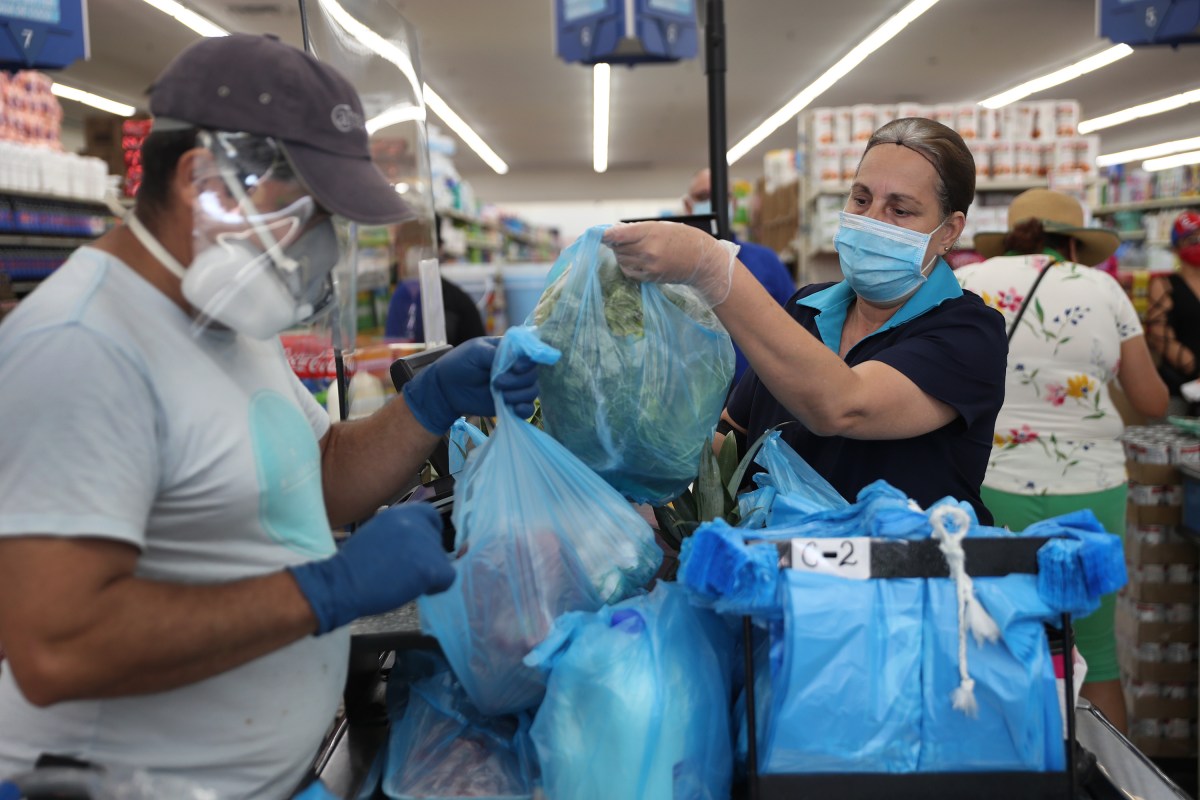Like all new technology, AI bears the burden of proof. It is now widely acknowledged that broad acceptance and adoption of these systems relies on their trustworthiness, which, in turn, is partly a function of whether the systems in use are transparent, accountable, secure, and fair. But a number of high-profile episodes—across many sectors—has exposed how AI systems can fail in these regards.
Society has arrived at the inflection point for government regulation. Done right, this will not stifle innovation or the market. Instead, tailored regulations can catalyze new AI developments, fortify demand, and create space for start-up enterprises.
Check out this next:
Trump finally signs the relief bill; delay causes confusion - Marketplace

Airlines get relief funds, but travel rebound could take a while - Marketplace

Thousands of airline workers will keep their jobs thanks to funding in the new COVID-19 relief package.
Southwest Airlines canceled plans for furloughs and pay cuts while United and American said they would bring back thousands of furloughed employees.
The relief measure provides $15 billion to pay workers' salaries through the end of the March. But it may take much longer for the industry to rebound.
With people now beginning to get vaccinated for COVID-19, many Americans may start to think about travel, said analyst Henry Harteveldt.
How weak overtime protections contribute to inequality - Marketplace

The Fair Labor Standards Act requires employers to pay employees who work more than 40 hours a week overtime pay, generally 1.5 times their regular pay rate, for those extra hours.
But one of the biggest exceptions to that rule is for salaried employees whose income is above a certain threshold, with the logic that highly paid white-collar workers have enough power in their workplace that they don't need overtime protections.
That threshold, below which salaried workers would earn overtime, was regularly updated with inflation for years until 1975, when it was set at what would be around $57,000 in 2020 dollars. But today the threshold is just $35,568 — set by the Trump administration in 2019 and following a federal judge blocking the Obama administration's 2016 attempt to raise the threshold to $47,476 and adopt a provision to automatically update it with inflation.
While you're here, how about this:
Jim Rogers warns stock bubble will grow in 2021: "I've seen this movie before" -

In an interview for “Marketplace Morning Report” from the BBC World Service, he issued a note of caution about market conditions but said iron ore, copper, silver and gold remain strong bets as we close out an unpredictable and volatile year.
“I think everything has done badly,” Rogers said. “People couldn’t work, people couldn’t eat, people couldn’t do anything. But as I look around the world, bonds are certainly in a bubble. Stocks in some countries are near highs. Property in many places is [in a bubble]. About the only asset class I see that’s still cheap, are commodities.”
Biden faces economic obstacles beyond the pandemic's burdens - Marketplace

Beyond facing the health and economic challenges brought on by the COVID-19 pandemic, President-elect Joe Biden and Vice President-elect Kamala Harris plan to focus on building racial equity and addressing climate change . But current budgetary restraints could make tackling such initiatives difficult.
David Brancaccio: There are the campaign promises — let’s call them promises with good intentions. But when a new administration comes in there is, what would you say, a reality check?
Senate GOP blocks swift vote on Trump's $2K checks - Marketplace

Senate Majority Leader Mitch McConnell on Tuesday blocked Democrats' push to immediately bring President Donald Trump's demand for bigger $2,000 COVID-19 relief checks up for a vote, saying the chamber would "begin a process" to address the issue.
Pressure is mounting on the Republican-led Senate to follow the House, which voted overwhelmingly on Monday to meet the president's demand to increase the checks from $600 as the virus crisis worsens. A growing number of Republicans, including two senators in runoff elections on Jan. 5 in Georgia, have said they will support the larger amount. But most GOP senators oppose more spending, even if they are also wary of bucking Trump.
Marketplace: Why Dealer Sell-Out Levels Are Trending Negatively | 2020-12-29 | Modern Tire Dealer

:In November, sell-out trends also entered negative territory for the first time since June 2020 as surveyed dealers reported an average unit sales decrease of 3.6% versus November 2019 levels," says Healy.
The MTD exclusive is provided by John Healy, managing director and research analyst with Northcoast Research Holdings LLC, based in Cleveland, Ohio. Healy, who writes MTD's monthly Marketplace column, covers a variety of subsectors of the automotive industry.
Happening on Twitter
U.S. law actually requires extra overtime pay if you work over 40 hours a week, even if you're salaried. But the s… https://t.co/pu4ih2wDJ3 DanPriceSeattle (from Seattle, WA) Tue Dec 29 18:43:00 +0000 2020
I find it interesting that something simple as building a website is a massive market and yet we don't have a sensi… https://t.co/SNNnlrfkAh asemota (from Will relocate for @Googlefiber) Tue Dec 29 09:35:06 +0000 2020
I can imagine libertarians get the vapors when conservatives dare suggest the government ensure the virtual marketp… https://t.co/OXczUch0r5 kylenabecker (from New York, NY) Tue Dec 29 02:30:23 +0000 2020

No comments:
Post a Comment